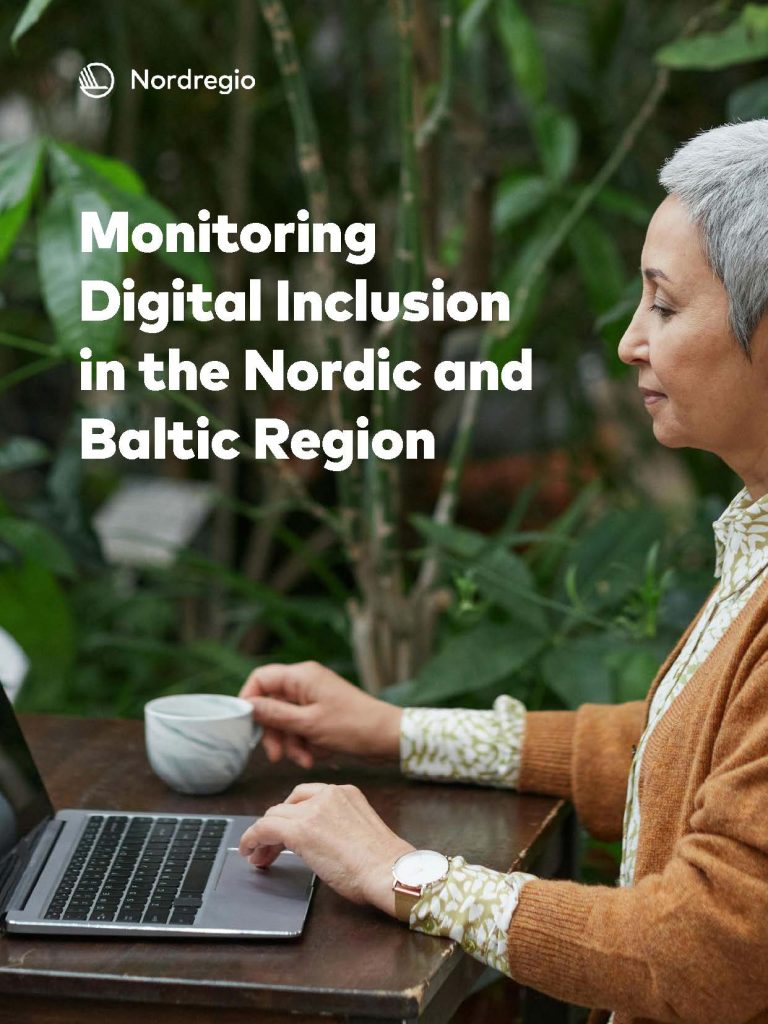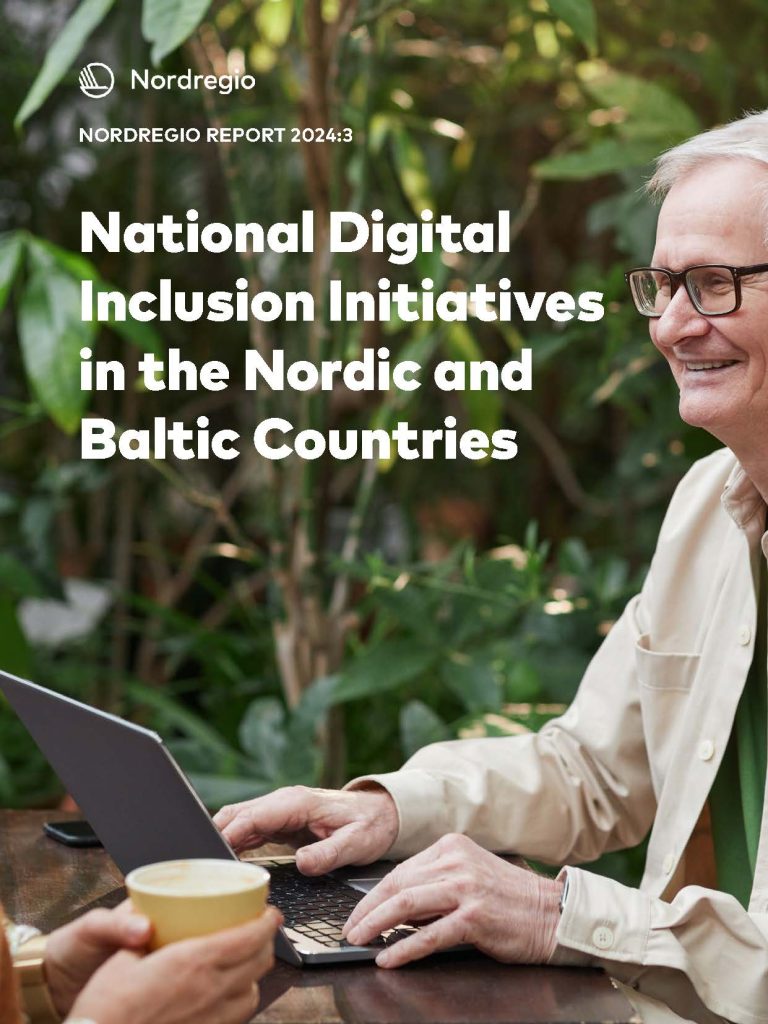Our Nordic and Baltic societies are becoming more and more digital, where digital skills are required to seek jobs and educational opportunities, use health care services or perform economic activities. This leads to a paradox – causing a higher degree of digital exclusion for those who cannot, or choose not, to use these services.
Digital Inclusion in Action launches two significant publications during a launch webinar. The event, led by researchers Sigrid Jessen and Maja Brynteson, unveiled a policy report on national digital inclusion initiatives in the Nordic and Baltic countries and a discussion paper on monitoring practices in these regions.


The policy report, co-authored by Nicola Wendt-Lucas, Sigrid Jessen and Maja Brynteson, delves into the national policies and initiatives of the Nordic and Baltic countries concerning digital inclusion. It reveals a substantial increase in initiatives related to digital inclusion, evidenced by the publication of 19 new strategies in less than two years. Despite the lack of a common definition of digital inclusion across these countries, there seems to be a shared understanding of its fundamental aspects, emphasising social justice and inclusion.
The report also identifies the primary target groups for digital inclusion as older adults and people with disabilities, with some policies also focusing on immigrants, women, younger adults, and lower-income and education groups. A key takeaway from the report is the necessity for more harmonised monitoring to develop in-depth studies and evidence-based policies.
The discussion paper, presented by partners from Digital Europe, Louise Palludan Kampmann and Lasse Wulff Andersen, emphasises the importance of monitoring digital inclusion to understand its scale and to foster evidence-based policymaking. The paper suggests that while the Nordic and Baltic countries have made significant strides in digital inclusion at the policy level, there is a gap in implementing corresponding monitoring practices.
Key recommendations from the discussion paper include developing a unified definition and consistent monitoring of digital inclusion, monitoring the effects of policy efforts, and fostering collaboration and learning. The paper proposes enhanced cooperation among Nordic and Baltic countries, where we can act as frontrunners, while still taking into account the larger trends on EU level, and in the long term, aligning more closely with EU frameworks.
In summary, progress has been made in the Nordic and Baltic countries regarding digital inclusion, while we are also underscoring the need for more cohesive definitions, enhanced monitoring, and cooperative efforts both within the region and at the EU level.
Access the two publications below, and watch a recording of the webinar via the event page below.




